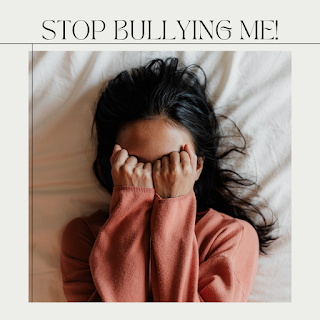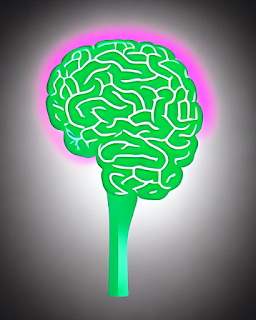Bullied No More!
I've been a victim of bullying since young. And I think I've acquired what's known as 'learned helplessness' from many years of being bullied, which was probably why I used to think that I was powerless to change anything in my life no matter how much I hated what was happening! For many years, I felt so disempowered and over time, I came to believe that whatever that had happened must happen as a matter of fate.
What is Learned Helplessness?
According to Very Well Mind, learned helplessness "occurs when a person who has experienced repeated challenges comes to believe they have no control over their situation". (https://www.verywellmind.com/what-is-learned-helplessness-2795326)
Berkeley Well-Being Institute puts it this way: When we believe that we can't change our painful circumstances, we stop trying and we just endure what's happening. (https://www.berkeleywellbeing.com/learned-helplessness.html)
What is Bullying?
Bullying is defined as "persistent acts intended to make life unpleasant for another person". (https://en.wiktionary.org/wiki/bullying)
It's "any unwanted or aggressive behavior from someone who is intentionally trying to upset, harm, or have power over you". (https://www.verywellhealth.com/bullying -5218622)
Bullying is the "deliberate and repetitive use of words or actions against a person or group of people to cause social, physical, or psychological harm".(https://www.betterhelp.com/advice/self-esteem/the-top-reasons-why-people-bully/)
It's a "distinctive pattern of repeatedly and deliberately harming and humiliating others, specifically those who are smaller, weaker, younger or in any way more vulnerable than the bully". (https://www.psychologytoday.com/us/basics/bullying)
Types of Bullying
There are different types of bullying. We'll focus on 4 types here:
1. Verbal Bullying
A bully may make fun of their victim, call them names, insult them and/or intimidate them verbally. A bully may also deliberately use hurtful words on their victim. (https://www.healthline.com/health/childrens-health/types-of-bullying)
Hurtful words can break a person and cause deep emotional scars. (https://www.healthline.com/health/childrens-health/types-of-bullying) Words can 'kill' a person because there's power in our spoken words.
2. Physical Bullying
Physical bullying is probably the easiest to spot because there are likely to be scars or wounds. It includes kicking, hitting and pushing. Deliberately causing someone to trip over counts as physical bullying too. (https://www.healthline.com/health/childrens-health/types-of-bullying)
3. Relational Bullying
Relational bullying, also known as social bullying, may be harder to spot because it usually happens behind the back of the victim. (https://www.healthline.com/health/childrens-health/types-of-bullying)
Lying and spreading rumours about another person are considered as relational bullying. Ostracising someone or embarrassing them in public are also relational bullying. (https://www.healthdirect.gov.au/bullying) Damaging a person's reputation is yet another example of relational bullying.
4. Cyberbullying
Cyberbullying is using technology such as emails, mobile phones and networking sites to hurt a person. (https://www.healthdirect.gov.au/bullying)
It's a virulent form of bullying because cyberbullies know it's hard to catch them and also because they tend to hide behind anonymity. (https://www.healthline.com/health/childrens-health/types-of-bullying)
Who is a Bully?
A bully is someone who "intimidates, abuses, harasses, or coerces people, especially those considered unlikely to defend themselves". (https://www.dictionary.com/browse/bully) A bully is a person who "hurts or frightens someone else, often over a period of time, and often forcing them to do something that they do not want to do".(https://www.dictionary.cambridge.org/dictionary/english/bully)
A tyrant is a bully. A tyrant is someone who treats the people they've authority over in a cruel and unfair way. (https://www.collinsdictionary.com/dictionary/english/tyrant) Specifically, a political tyrant is "an absolute ruler who is unrestrained by law, or one who has usurped a legitimate ruler's sovereignty". (https://en.wikipedia.org/wiki/Tyrant)
Incidentally, a tyrant often uses fear and intimidation to maintain their hold on power, and they may resort to violence or other extreme measures to suppress dissent and maintain their control. They may also use propaganda or other forms of manipulation to control the thoughts and actions of those who're under their rule. (https://thecontentauthority.com/blog/bully-vs-tyrant)
Why Does a Bully Bully Others?
1. A Bully is Insecure
A person who bullies others may be deeply insecure. And they may engage in bullying to compensate for their own sense of insecurity. (https://www.betterhelp.com/advice/self-esteem/the-top-reasons-why-people-bully/)
2. A Bully Has Poor Social Skills
A bully may bully others due to their poor social skills. And such a person may feel deeply insecure about their social skills or their ability to interact with others. (https://www.goodtherapy.org/learn-about-therapy/issues/bullying)
Hence, if a bully is able to develop strong social skills, they'll be less likely to bully others, because they'll be able to navigate difficult situations without having to resort to intimidation, manipulation and other bullying tactics. (https://www.verywellfamily.com/how-to-build-social-skills-and-prevent-bullying-460718)
3. A Bully Lacks Empathy
In my opinion, a bully tends to lack empathy. They lack the ability to put themselves in the shoes of someone else. And they don't care if their bullying has any adverse impact on their victims.
According to Learning for Justice, when we look into the heart of bullying, we often find deficits of emotional control and empathy.(https://www.learningforjustice.org/magazine/empathy-the-antidote-to-bullying)
Can you learn empathy? I believe so. How? Well, if you want to learn empathy, I'd suggest that you go and help the less fortunate. It's definitely one way to develop empathy over time.
4. A Bully Has Control Issues
Based on my personal experiences with control freaks, I dare say that people who've control issues tend to be bullies. (https://anythingunderthesun-blog.blogspot.com/2024/01/are-you-control-freak.html)
If a person who has control issues is in a position of power, they're more likely to bully others. And if using their power to control others makes them feel better about themselves, they're more likely to use their power to bully others.(https://www.goodtherapy.org/learn-about-therapy/issues/bullying)
5. A Bully Can Hide Behind Anonymity
A bully who bullies others online can hide their identity. Likewise, a bully who bullies others through another person can also hide their identity, in a certain sense.
A bully who bullies others online doesn't have to face their victims and therefore it requires less courage to bully. Additionally, it gives them the illusion that they won't get caught.(https://www.endcyberbullying.net/why-do-people-cyberbully)
Effects of Bullying on a Victim
Bullying can cause a great amount of mental and emotional damage to a victim, especially if it's been ongoing over many years. According to Psych Central, bullying "can have a significant impact on a person's mental health" and it can "lead to anxiety, depression and persistent low confidence". (https://psychcentral.com/lib/bullying-and-mental-health-effects)
The pain and distress victims experience can impact almost every aspect of their lives leaving them feeling lonely, isolated, vulnerable and anxious. And the consequences of bullying can continue to affect them long after the bully has moved on to another target. (https://www.verywellfamily.com/bullying-and-anxiety-connection-460631)
1. Post-Traumatic Stress Disorder (PTSD)
As someone who's being bullied over a prolonged period of time, it's caused me deep emotional trauma and distress, which has led to my PTSD. (https://www.nctsn.org/what-is-child-trauma/trauma-types/bullying/effects)
How do you tell if you're suffering from PTSD? Well, if you're avoiding triggering events, people or places that remind you of traumatic experiences you've gone through, then there's a high probability that you're suffering from PTSD. (https://www.verywellfamily.com/bullying-can-lead-to-ptsd-460614)
If you've flashbacks, nightmares, severe anxiety or uncontrollable thoughts about the triggering events, these are also signs of PTSD.(https://www.mayoclinic.org/diseases-conditions/post-traumatic-stress-disorder/symptoms-causes-syc-20355967)
The bullying may have stopped, but that doesn't necessarily mean that the stress you've experienced has ceased. PTSD can show up in a person's life long after the bullying has stopped. (https://www.verywellfamily.com/bullying-can-lead-to-ptsd-460614)
2. Depression
There's a strong link between being bullied and depression.(http://www.bullyingstatistics.org/content/bullying-and-depression.html) This is especially true if you've been a victim of bullying over many years.
Depression is defined as "a mood disorder that causes a persistent feeling of sadness and loss of interest". It affects how you think, feel and behave and it can lead to a variety of emotional and physical problems.(https://www.mayoclinic.org/diseases-conditions/depressionn/symptoms-causes-syc-20356007)
Symptoms of depression include outbursts of anger, irritability, sleep disturbances, lack of energy, anxiety, restlessness (https://www.mayoclinic.org/diseases-conditions/depressionn/symptoms-causes-syc-20356007), feelings of hopelessness and difficulty concentrating. (https://www.medicalnewstoday.com/articles/326769)
3. Generalised Anxiety Disorder (GAD)
There are different types of anxiety disorder that a victim of bullying may experience. But we'll only be covering GAD here.
So what is GAD? GAD is defined as a mental and behavioural disorder that's characterised by excessive, uncontrollable and often irrational worries about events or activities.(https://en.wikipedia.org/wiki/Generalized_anxiety_disorder)
People with GAD are often plagued by worries and fears that distract them from their day-to-day activities. Besides constantly worrying about things, there are physical symptoms as well. Examples include fatigue, stomachache and restlessness. (https://www.verywellfamily.com/bullying-and-anxiety-connection-460631)
As a victim of bullying, I've developed multiple irrational fears over time. And these fears are a result of persistent bullying that I've endured.
For instance, a tyrant who's been sending numerous people to stalk and spy on me over many years has caused me to fear what he'd do to cause me harm, especially when I'm overseas. That's one of the reasons why I'm hesitant to travel now.
(Note: To me, crossing over to the other side of the causeway isn't travelling because I'll only be there for a few hours or at most a day, and I won't need to check into a hotel or take a flight.)
What Can You Do If You're a Victim of Bullying?
There are coping strategies for bully victims. The following are just some of the strategies:
1. Stay Calm
A bully may try to get an emotional response from you. If you lose your cool, you're actually falling into the bully's trap and that will likely make them bully you more. So try your best to stay calm and avoid letting them know how you feel. (https://www.wikihow.com/Stop-Bullying)
The aforementioned tyrant has the sick habit of getting people to provoke me over the years. I believe one of the reasons why he keeps doing that is because he wants me to lose my cool and flare up at those who've been sent by him to provoke me.
The initial provocations were seemingly more intense and frequent. Now they're less frequent, which I believe could be because I'm better able to exercise emotional restraint.
2. Build Your Self-Esteem
If you're a victim of bullying, it's likely that you've low self-esteem. This is because when you're bullied, things like self-esteem and confidence are affected the most. (https://www.ditchthelabel.org/rebuilding-your-confidence-after-bullying?origin=serp_auto)
Therefore, building self-esteem after bullying is critical because a bully is less likely to pick on those who're confident.
3. Have Safety Buddies
When dealing with an unrelenting bully, it may be helpful to stick close to those you trust because their presence could serve as a deterrent to the bully. (https://www.verywellmind.com/common-reasons-why-people-bully-5496259)
Moreover, they can intervene when you're bullied. And they can be your witnesses should you decide to report them, whether it's reporting them to the authorities or your principal or your boss or any other authority figures. (https://www.verywellmind.com/common-reasons-why-people-bully-5496259)
4. Avoid Crossing Paths with a Bully
Look for ways to avoid crossing paths with a known bully. That could mean taking a different route to work or avoiding places where they usually hang out. (https://www.verywellmind.com/common-reasons-why-people-bully-5496259) This isn't cowardice. In fact, it's a wise thing to do, especially if you're alone.
For instance, if the bully is always seeking you out to bully you and if there's no one who could help you or who's willing to help you, you may eventually suffer a mental breakdown. Or you may end up killing yourself. Is it worth it? No, it's definitely not worth it. So a wiser choice is to try to avoid the bully.
5. Learn to Be Assertive
You're more likely to get bullied if you're passive or compliant. This is because a bully tends to seek out those who're not assertive. So learn to be assertive and stand up for yourself. (https://www.verywellfamily.com/how-to-build-social-skills-and-prevent-bullying-460718)
I know it's hard to be assertive if you've been bullied for a long time. I know because I've been there. It takes a long time for me to learn to be assertive. I'm still not there yet and I'm still learning to be more assertive. But I'm sure eventually I'll get there.
How do you learn to be assertive? According to Very Well Mind, you can do the following:
(a) Learn to Say "No"
A non-assertive person often struggles with saying "no", even when their boundaries are breached. It's usually difficult to say "no" to someone for the first time if you've been saying "yes" all the time. But there's always a first time. And once you've said "no" for the first time, you'll find it easier to say "no" to the same person subsequently or to someone else.
(b) Start Small But Be Consistent
You can't expect yourself to become assertive overnight. It takes time. So start by taking a small step. For instance, if you place an order for a set meal at a restaurant but the waiter just brings you a beverage, you can tell him gently but assertively that he's got your order wrong.
(c) Let Your Body Speak
Body language, though unspoken, is a powerful language because it can tell others things about you that you don't say. For instance, if you're looking down when you're speaking with someone, it shows them that you either lack confidence or that you're nervous. So try to project confidence instead by standing upright and maintaining eye contact with them.
(d) Speak to a ProfessionalSometimes there could be underlying reasons for your lack of assertiveness. For instance, you could be suffering from a mental health condition such as GAD, which makes it difficult for you to be assertive. Therefore, it might be wise to seek help from a professional such as a qualified psychologist or therapist, who can help you find the root cause and equip you with the tools to manage or overcome it.
Alternatively, you may want to attend an assertiveness training for victims programme. (https://www.sciencedirect.com/science/article/abs/pii/S088259631630166X)
6. Get Help/Support
If you're a victim of bullying, it's important for you to reach out to someone to get the help you need. For instance, if you're bullied by a school bully, you could get help from your teacher or principal or an adult figure you could trust.
Being bullied could leave behind a trail of emotional scars, especially if you've been bullied over many years. And it'd certainly take time to heal. While you're in the process of healing - whether it's self-healing or with the help of a professional - it's crucial for you to get some kind of emotional support.
Bullies tend to isolate their victims and cut off any support they may have. (https://www.wikihow.com/Stop-Being-Bullied) And therefore if you're a victim of bullying, it's important that you surround yourself with supportive people or learn to reach out to others to get the support you need.
7. Seek Healing
If you're physically bullied, you might need to see a physician for your physical wounds. But since being physically bullied can also leave behind emotional scars, you might need to seek help via some form of therapy as well. Examples of therapy include talk therapy and art therapy. (https://www.healthline.com/health/mental-health/bullying-therapy) Alternatively, you might want to take proactive steps to heal yourself.
I think it's important for you to seek emotional healing early because the longer you take, the emotional scars may get 'buried' deeper causing physical manifestations in the form of chronic and/or terminal illnesses over time. I'm saying this based on my personal experiences. (https://anythingunderthesun-blog.blogspot.com/2022/09/how-to-heal-emotional-trauma.html)
In short, please seek healing for your emotional wounds early before they 'fester' and start causing irreparable damage to your body and soul.
Conclusion
If you're a victim of bullying, you shouldn't allow the bullying to continue by remaining silent. Learn to stand up to the bully or at the very least, reach out to someone who could help you deal with the bully or provide the emotional support you'll need.
Ultimately, healing from bullying trauma requires a multifaceted approach, including support.
Cheers,
Annie Chan
(P/s: My next blog post will be published on 2 Jun 2024.)
NOTES
1. Check out my website:
https://www.elevatewellnesscircle.com/
2. Check out my affiliate programme:
https://www.elevatewellnesscircle.com/affiliate
3. Try for FREE: power recharge therapy, power foot detox therapy & acugraph energy analysis! (https://energia.sg/free?ref=anniechan)















.png)



.png)





